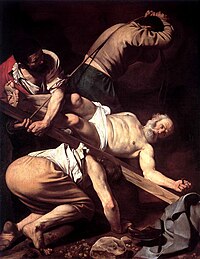Eliezer Yudkowsky, a skeptical blogger, addresses the question of whether religion is falsifiable in Religion's Claim to be Non-Disprovable:
The earliest account I know of a scientific experiment is, ironically, the story of Elijah and the priests of Baal.
The people of Israel are wavering between Jehovah and Baal, so Elijah announces that he will conduct an experiment to settle it – quite a novel concept in those days! The priests of Baal will place their bull on an altar, and Elijah will place Jehovah’s bull on an altar, but neither will be allowed to start the fire; whichever God is real will call down fire on His sacrifice. The priests of Baal serve as control group for Elijah – the same wooden fuel, the same bull, and the same priests making invocations, but to a false god. Then Elijah pours water on his altar… to signify deliberate acceptance of the burden of proof, like needing a 0.05 significance level. The fire comes down on Elijah’s altar, which is the experimental observation. The watching people of Israel shout “The Lord is God!” – peer review.
And then the people haul the 450 priests of Baal down to the river Kishon and slit their throats. This is stern, but necessary. You must firmly discard the falsified hypothesis, and do so swiftly, before it can generate excuses to protect itself. If the priests of Baal are allowed to survive, they will start babbling about how religion is a separate magisterium which can be neither proven nor disproven.
The story of Elijah and the priests of Baal presents a good framework for our discussion of what would falsify the resurrection, and consequently, Christianity. (Although, needless to say, I reached a different conclusion from Yudkowsky about whether Christianity has been falsified. He relied on his interpretation of tangential issues in the Old Testament--not on the resurrection.) Of course if something directly contradicts the claim that Jesus was raised from the dead, then the resurrection would be falsified. However, evidence that actually disproves a supernatural event is not easy to come by.
 For example, this website addresses the claim of Joseph Smith that the angel Moroni appeared to him at night when he was a teenager. The author gives a photo of the Smith residence and says that his five brothers would have slept in the same small room, three to a bed, but none of them woke up and noticed the magnificent visitation or even their brother having a conversation (and a powerful spiritual experience) all night. This seems to at least falsify the idea that the angel was present in the room, as opposed to just in Smith's mind. It is consistent with a hallucination. However, it is also consistent with the event in Matthew 2:13, where an angel appears to Joseph, the father of Jesus, in a dream. So the visitation to Smith has not been disproven, but it is consistent with either a normal dream or a hallucination. This means that absent more compelling evidence for Smith's claims, we would be wise to exercise healthy skepticism.
For example, this website addresses the claim of Joseph Smith that the angel Moroni appeared to him at night when he was a teenager. The author gives a photo of the Smith residence and says that his five brothers would have slept in the same small room, three to a bed, but none of them woke up and noticed the magnificent visitation or even their brother having a conversation (and a powerful spiritual experience) all night. This seems to at least falsify the idea that the angel was present in the room, as opposed to just in Smith's mind. It is consistent with a hallucination. However, it is also consistent with the event in Matthew 2:13, where an angel appears to Joseph, the father of Jesus, in a dream. So the visitation to Smith has not been disproven, but it is consistent with either a normal dream or a hallucination. This means that absent more compelling evidence for Smith's claims, we would be wise to exercise healthy skepticism. How do we then approach the question of falsification of the resurrection? This is where Yudkowsky's ingenious interpretation of Elijah and the priests of Baal is helpful. Just like God, through Elijah, raised the burden of proof by pouring water onto the wood on the altar and into the trench, it appears that God has raised the burden of proof for the resurrection by leaving no plausible naturalistic explanation for the evidence.
Since the death of Jesus, skeptics have tried to explain away the resurrection--starting with the claim that the disciples stole the body. Since then, they have put forth the swoon theory, the twin theory, the wrong tomb theory, conspiracy theories, and the hallucination theory, among others. All have major flaws and most have been discarded. Some skeptics, like David Hume and Bart Ehrman, have attempted to stay above the fray and simply dismiss the evidence by saying, essentially, that the supernatural is always the least likely. But this approach has been refuted using Bayes' Theorem. To say that the supernatural is the least likely, regardless of the evidence, is mathematically fallacious, as non-theistic philosopher of physics John Earman demonstrates in Hume's Abject Failure.
In 1 Kings 18:20-29, the priests of Baal frantically called on the name of Baal all day long without response, and Elijah began to taunt them: "Shout louder! Surely he is a god! Perhaps he is deep in thought, or busy, or traveling. Maybe he is sleeping and must be awakened." They shouted louder, leaping around the altar and slashing themselves with swords--to no avail.
This brings to mind the efforts to explain away the resurrection, in the context of Psalm 2:1-4. "Why do the nations conspire and the peoples plot in vain? The kings of the earth take their stand and the rulers gather together against the LORD and against his Anointed One. 'Let us break their chains,' they say, 'and throw off their fetters.' The One enthroned in heaven laughs; the Lord scoffs at them."
In 1 Kings 18:33-39, Elijah prepared his sacrifice, asking God to reveal to the people that He is the God of Israel and that Elijah was His servant. Fire from heaven fell down on the altar and consumed the offering, the wood, the stones, the dust, and the water in the trench. God accepted Elijah's sacrifice.
Likewise, God accepted the sacrifice of Jesus for our sins and proved it by raising Him from the dead. The resurrection confirmed all the teachings of Jesus as being from God, including His claim to deity, and through it, God fulfilled the repeated prophecy of His Son that He would be delivered into the hands of sinners to die and be raised on the third day (Matthew 16:21, Matthew 17:22-23, Matthew 20:18-19, Mark 8:31, Mark 9:31, Mark 10:34, Luke 9:22, Luke 18:31-33, Luke 24:7).
As Paul said to the men of Athens: "God is now declaring to men that all people everywhere should repent, because He has fixed a day in which He will judge the world in righteousness through a Man whom He has appointed, having furnished proof to all men by raising Him from the dead" (Acts 17:30-31).



